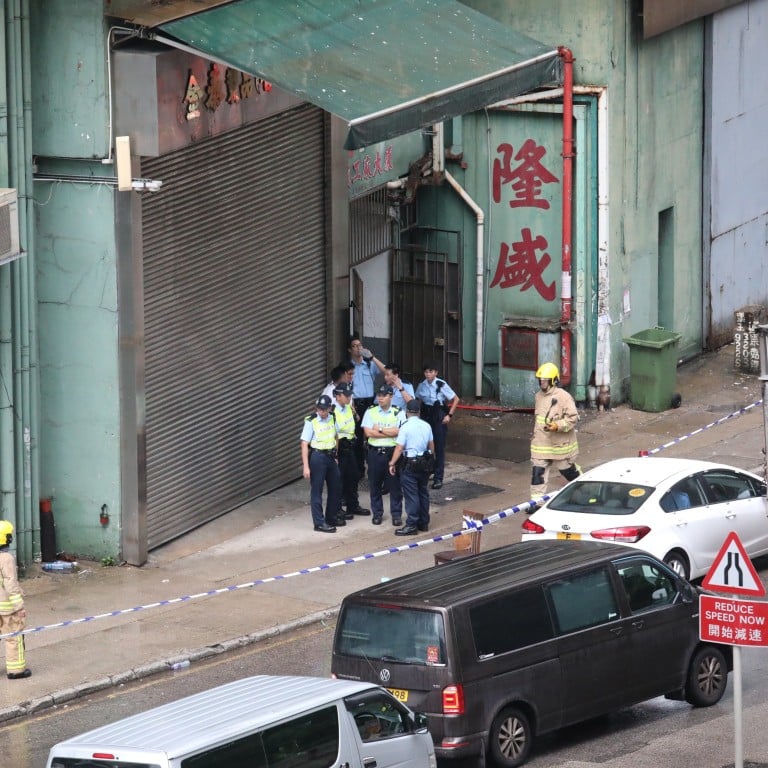
Three arrested over Hong Kong’s ‘largest-ever’ bomb plot on eve of major anti-government protest
- Pro-independence materials also among items seized in Tsuen Wan, where 27-year-old man is arrested
- Two men, both 25, arrested on Saturday night, one in Tsuen Wan and the other in Sheung Shui
Hong Kong police have detained three men after seizing what is being billed as the largest amount of the deadliest explosives ever uncovered in the city, along with pro-independence materials, from a home-made laboratory in a Tsuen Wan industrial building on the eve of another major anti-government march.
Controlled explosions were conducted on site at the Lung Shing Factory Building on Texaco Road on Saturday as the police bomb squad disposed of some of the extremely powerful and highly unstable explosives.
Senior superintendent Steve Li Kwai-wah of the Organised Crime and Triad Bureau said investigators were looking into the background of a 27-year-old man who was arrested in connection with the case to determine if it was related to the mass protest planned for Sunday, which has already sparked concerns about potential chaos because of a dispute over the route and duration of the march.
Two men, both aged 25, were also arrested on Saturday night in connection with the find, one in Tsuen Wan and the other in Sheung Shui.
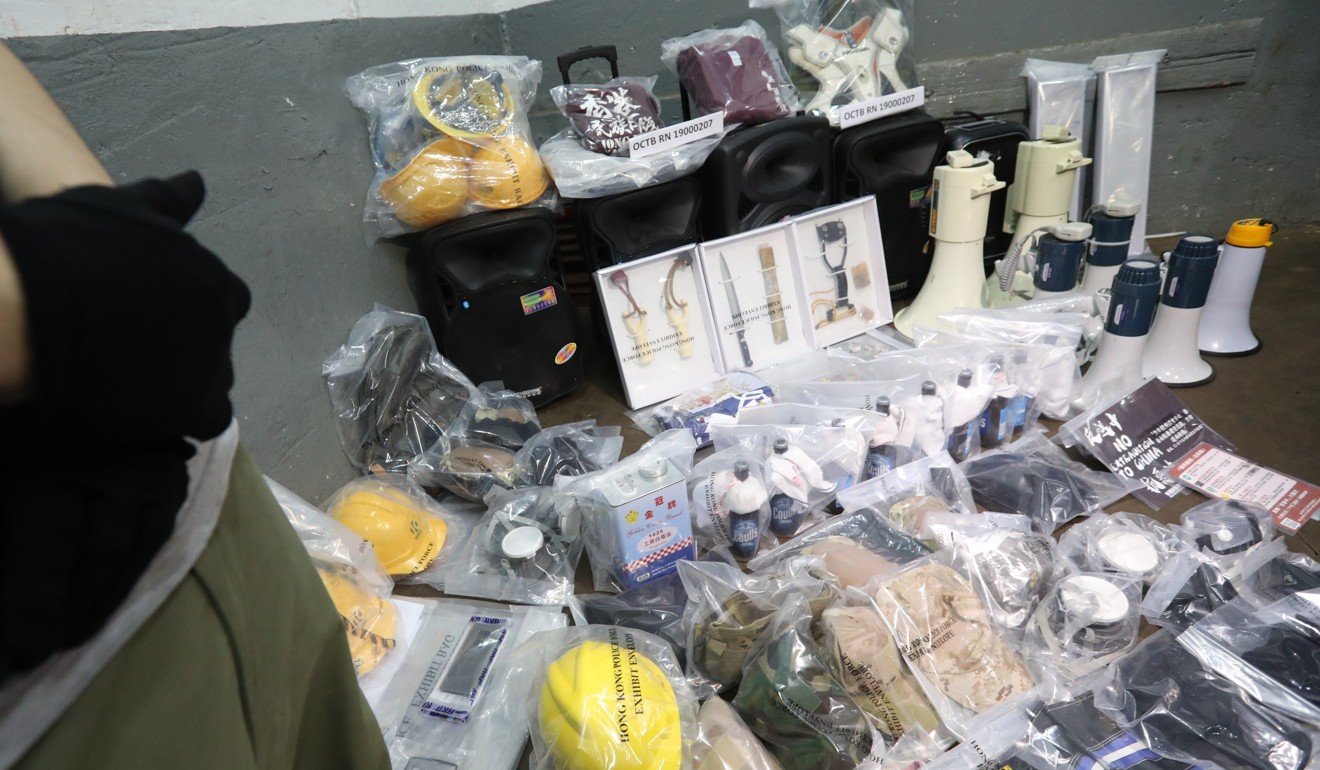
Superintendent Alick McWhirter of the Explosive Ordnance Disposal unit said: “I think, without a doubt, this is the largest seizure we have ever come across in Hong Kong.”
Referring to triacetone triperoxide, also known as TATP, an explosive substance among the materials seized, he added: “It is well known, unstable and dangerous.”
Four men with triad backgrounds arrested over petrol bomb attacks on police
The drama began at 10:30pm on Friday night when officers, acting on intelligence received, raided the building and found 2kg of powerful explosives, 10 petrol bombs and acidic substances being manufactured in the home-made lab, along with knives and metal rods.
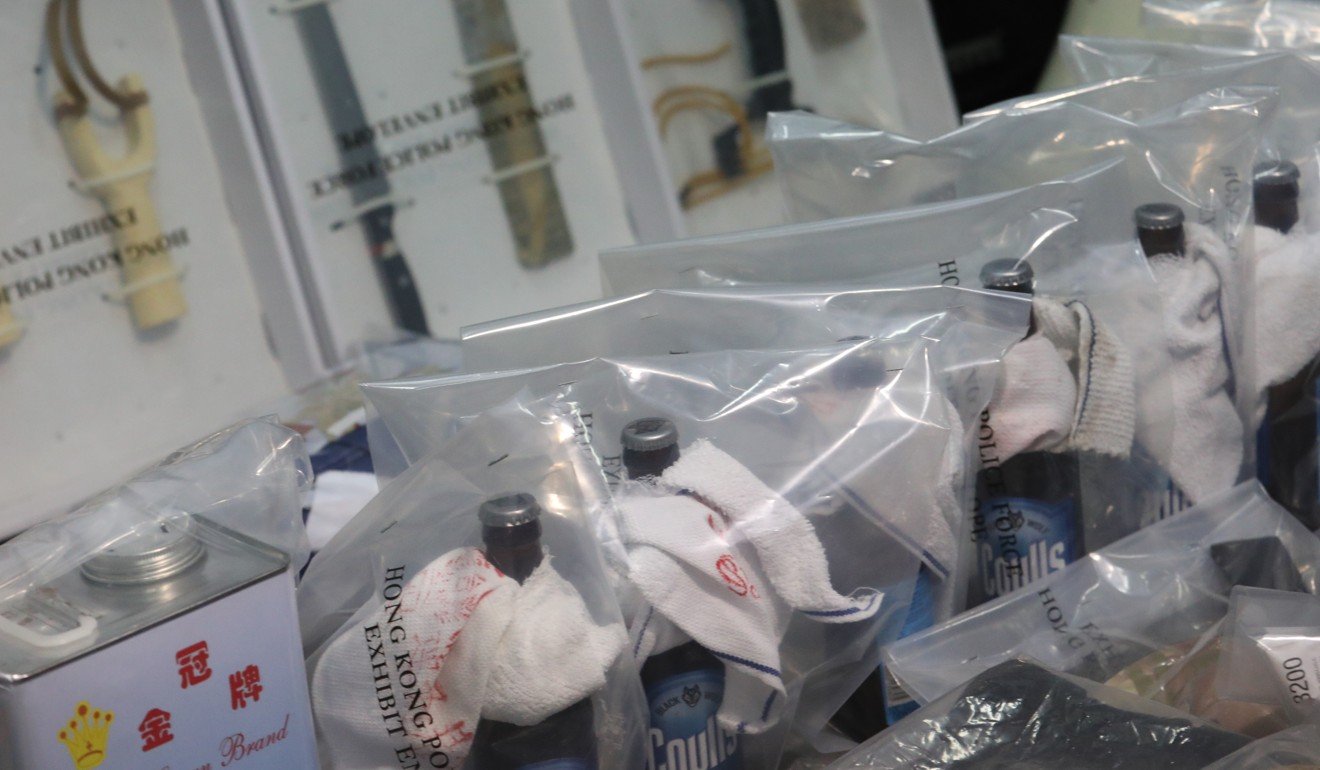
McWhirter said his squad handled about 1kg of TATP on Saturday morning and were still working on another kilogram of the explosives – the detonation and disposal process was expected to take some time.
He said TATP was highly unstable and powerful, with the potential to cause exceptional damage.
“There are multiple problems because we are dealing with the explosive in different stages of its manufacture … from ice-cold conditions to room temperature,” McWhirter said.
“The nature of this explosive means that … over a number of hours, its sensitivity can change, making it a constant challenge for my officers to adapt.”
All explosives had been safely handled by 9pm on Saturday.
Over a number of hours, its sensitivity can change, making it a constant challenge for my officers to adapt
TATP has been used in deadly terrorist attacks around the world, including in Israel and the London bombings of July 7, 2005, in which 52 people were killed and more than 700 injured. A small amount of TATP is powerful enough to blow a car to bits, and it can be treacherous for handlers as well because of its instability.
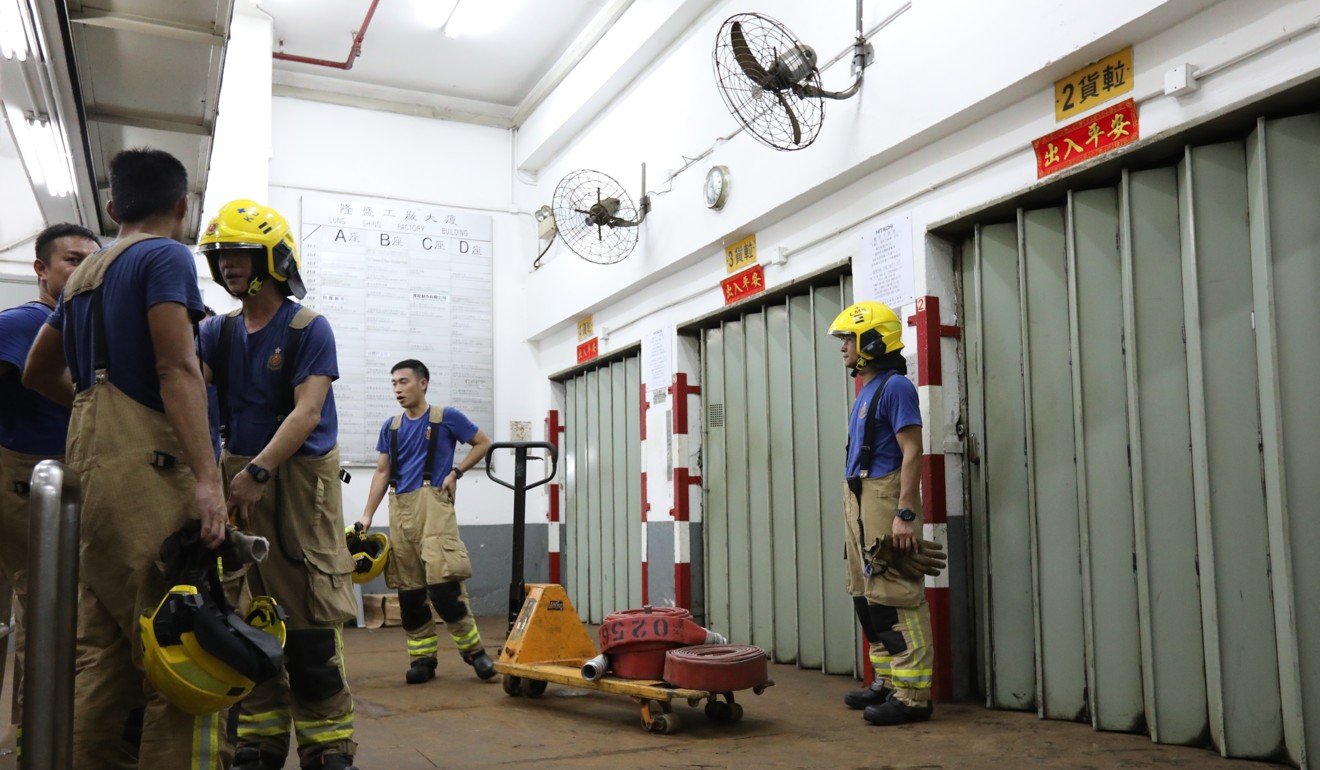
Items seized at the site on Saturday included a T-shirt with the logo of the Hong Kong National Front, a pro-independence group, leaflets saying “no extradition to China”, and a pamphlet on the June 9 protest march that drew historic numbers out onto the streets.
Police also seized several sets of portable loudspeakers, gas masks, goggles, hard hats and catapults, along with at least one can of kerosene.
Disqualified lawmaker Sixtus Baggio Leung Chung-hang, the spokesman of the Hong Kong National Front, was unavailable for comment by publishing time.
His group issued a statement through its Telegram messaging app channel, acknowledging that the man arrested was a member, but denying any knowledge of the explosives.
The group said the industrial unit was used to store acoustic equipment and other promotional materials.
Senior superintendent Li said the unit had been rented out for several months and the police would not rule out more arrests.
He condemned those behind the explosives lab for being irresponsible and posing a danger to society. They could face jail terms of up to 20 years under the law.
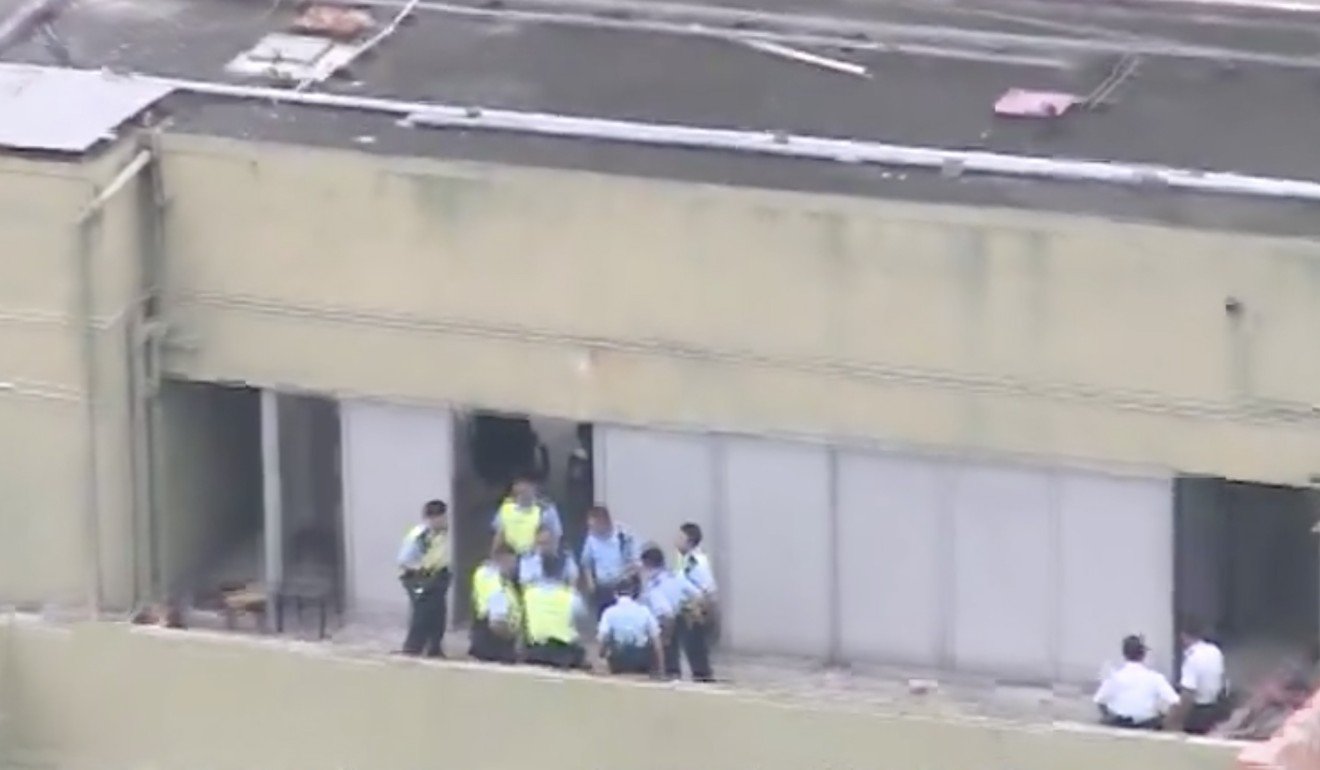
Firefighters were called in early on Saturday morning and people were evacuated from the factory building as police cordoned off the scene for bomb experts to carry out controlled detonations.
Six fire engines and two ambulances were sent to the scene.
The case raised tensions in the middle of a weekend of ongoing and planned protests against the government’s now-suspended extradition bill, even as police ramped up security measures over fears of continued violence.
Bomb plot rattles nerves, but lawmakers play down threat from independence party
In December 2017, three alleged members of a pro-independence party in Hong Kong were jailed for up to 46 months for making or possessing materials, including TATP, that could be used to produce explosives at the former ATV film studios in Ho Chung, Sai Kung.
The case was uncovered shortly before the city’s legislature was to vote on a controversial electoral reform bill in 2015.
They were suspected to be from the National Independent Party, which sought to make smoke bombs to sabotage the vote, according to a recorded police interview with one of the defendants that was played in court.

